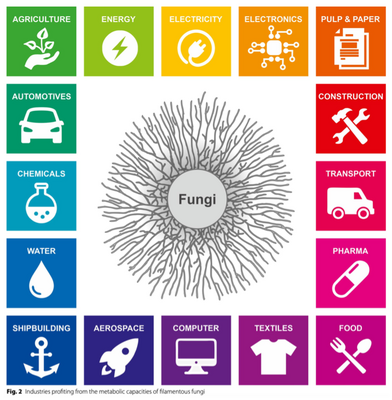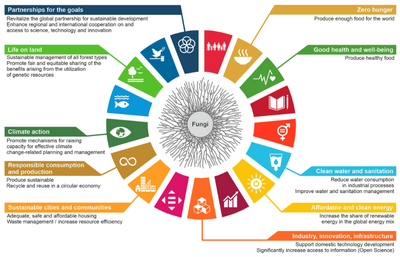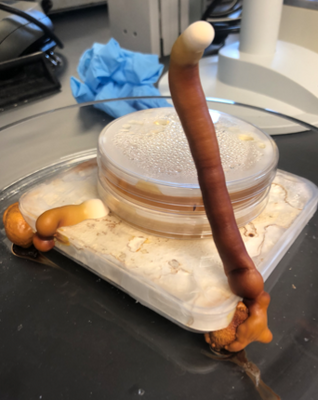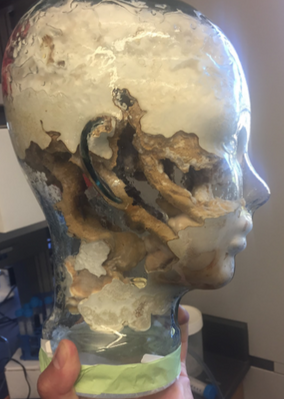Synthetic mycology
Mycology
Mycology is the study of fungi. Mycology includes the study of unicellular yeasts, multicellular filamentous fungi, the class of critters that can switch between unicellular and multicellular lifestyles, slime molds, lichens, and many other types of organisms in the fungal kingdom. There are many resources available to learn about mycology, such as the 21st Century Guidebook to Fungi. Please share your knowledge of the fungal world with this and the linked pages.
Fungal Phylogeny
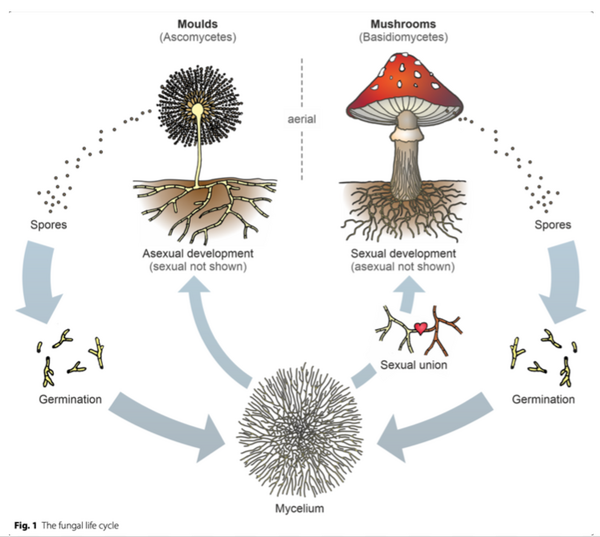
Fungal Biotechnology
Humans have long benefitted from partnerships with fungi. Fungi already enable numerous industries and hold potential to realize a more sustainable future.
-
Filamentous fungi enable many industries, Meyer et al. 2020. Creative Commons Attribution 4.0 International License. No modifications.
-
Fungi can support many of the United Nations Sustainable Development Goals, Meyer et al. 2020. Creative Commons Attribution 4.0 International License. No modifications.
Synthetic Mycology
We might define synthetic mycology as the application of synthetic biology materials, measures, and methods to the engineering with, for, and of fungi. Synthetic mycology could encompass wild fungi used to grow novel objects, engineered fungi endowed with new abilities, lineage-agnostic fungus-like organisms and everything in between. Synthetic mycology could enable enhanced modes of expression and multi-species play.
-
G. lucidum escaping a Parafilmed Petri dish.
-
A bioart piece, G. lucidum, c/o I. Justice.
